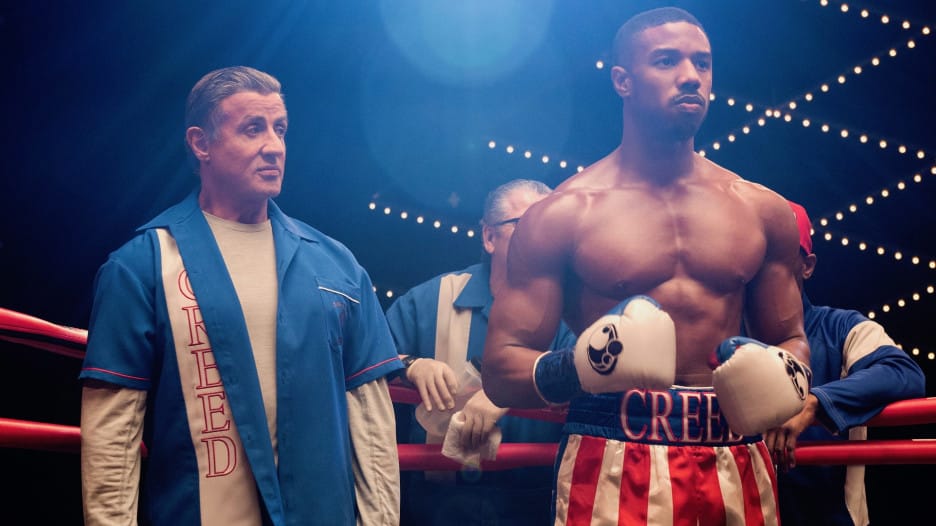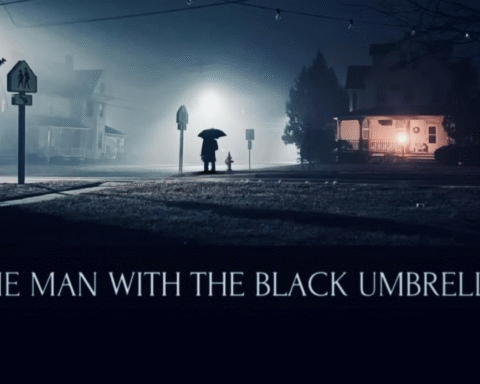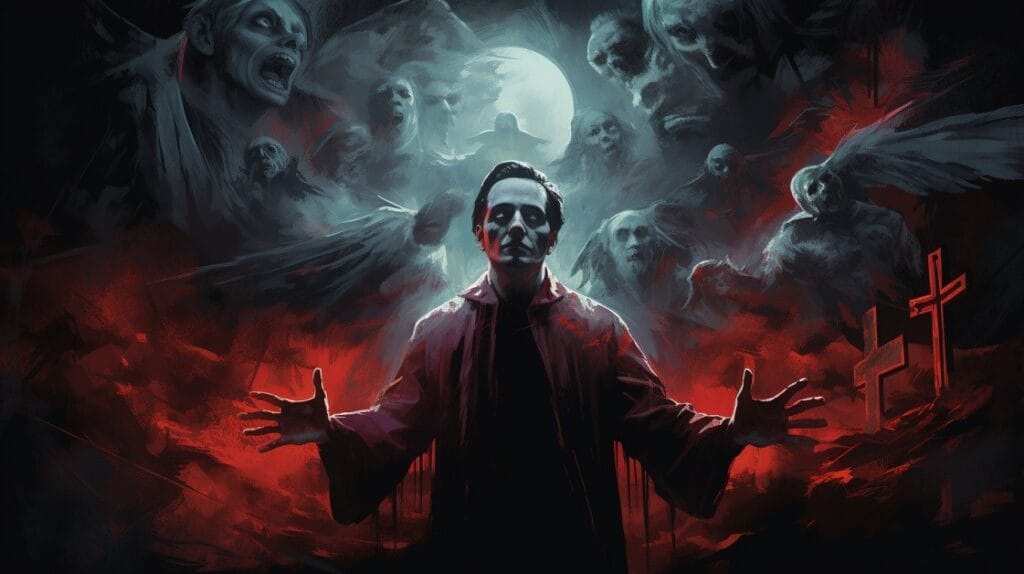The genesis of the Creed series is deeply rooted in the legacy of the Rocky films, a cornerstone of boxing cinema. The Creed franchise originated with the aspiration to breathe new life into the boxing film genre. This vision was brought to fruition by Ryan Coogler, the director of the inaugural Creed movie. Coogler’s innovation was focusing on Adonis Creed, the son of Apollo Creed, a beloved figure from the Rocky series. By doing so, he not only honored the essence of the Rocky saga but also paved the way for a new chapter that resonated with contemporary audiences.
Upon its release in 2015, the first Creed film made a significant impact. It was widely praised by critics, not merely as a tribute to Rocky, but as a compelling and standalone story. The movie’s success extended to the box office, where it garnered substantial revenue, solidifying its status as a key player in modern boxing films. What set Creed apart was its ability to bridge generational gaps. Longtime fans of the Rocky series found familiar elements and nostalgia, while a new generation was introduced to the world of boxing through the eyes of Adonis.
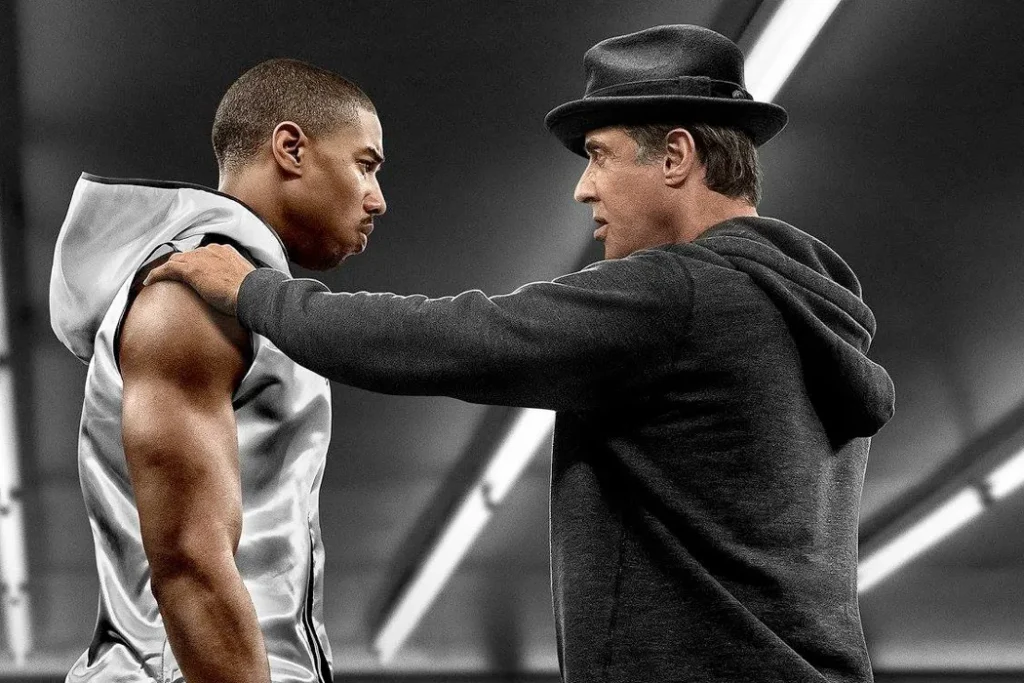

Integral to the franchise’s success was the introduction of Michael B. Jordan as Adonis Creed. Jordan’s portrayal brought a fresh energy and depth to the series, making Adonis a complex and relatable character. His performance was widely acclaimed, contributing to the movie’s broader appeal. The dynamic between Adonis and Rocky, played by Sylvester Stallone, added another layer of emotional depth, blending legacy with a fresh narrative.
The initial impact of the Creed film laid the foundation for a prosperous series that continues to thrive. It revitalized interest in boxing cinema and proved that the genre could evolve while staying true to its roots. The Creed franchise, thus, stands as a testament to the enduring appeal of boxing narratives and the power of thoughtful, character-driven storytelling.
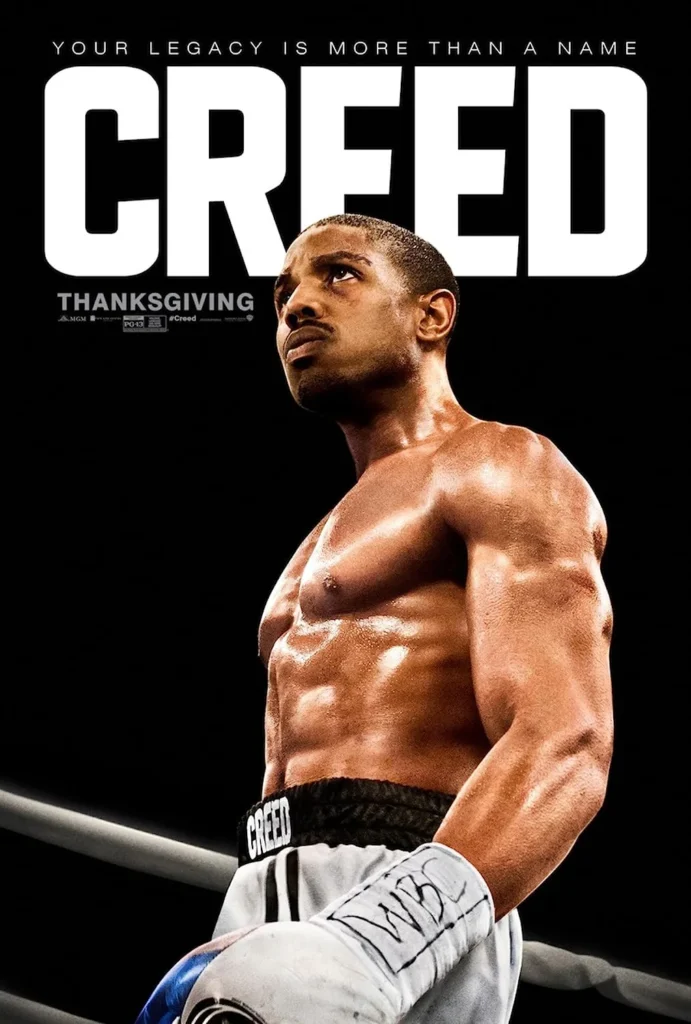
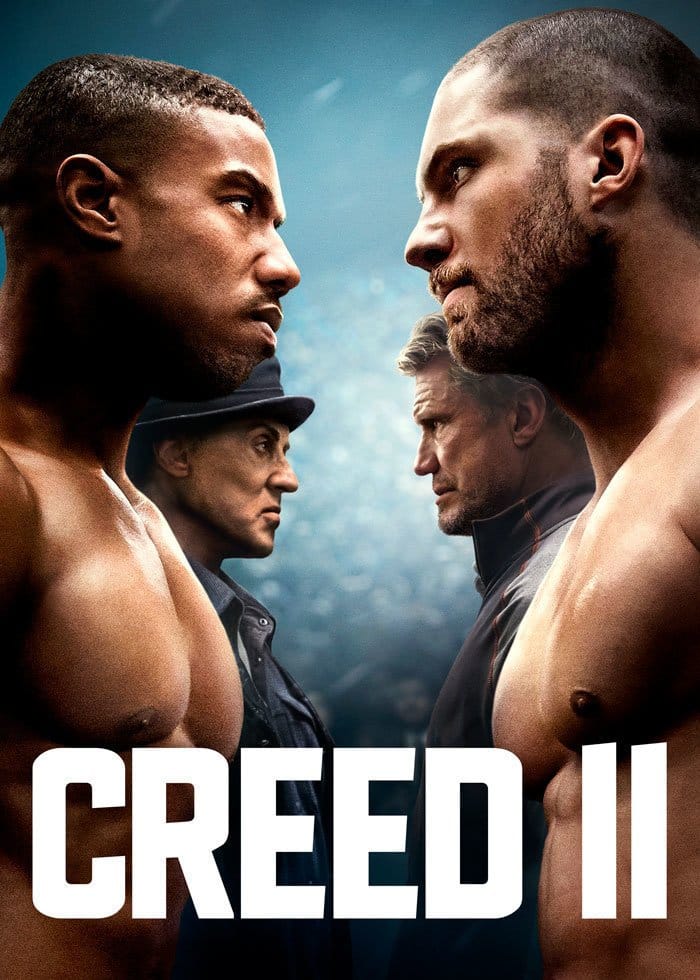
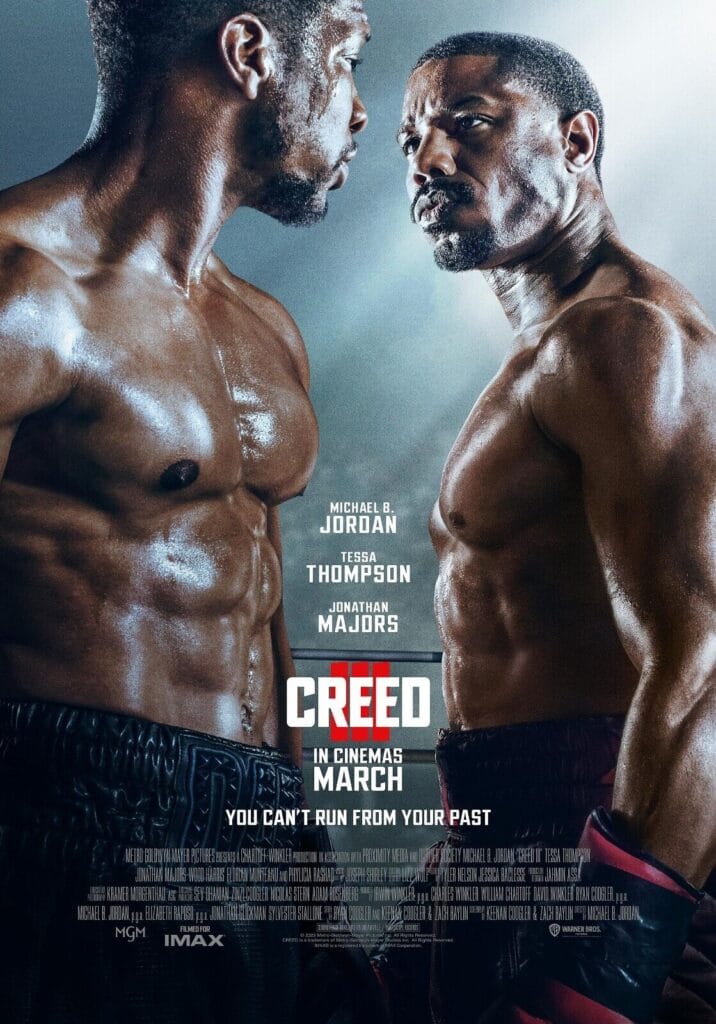
Creed’s Realistic Portrayal of Boxing
The Creed franchise has garnered widespread acclaim for its authentic depiction of boxing, which is rooted in its rigorous attention to detail and commitment to realism. This dedication ensures that audiences are not merely entertained, but also witness a portrayal of boxing that reflects the sport’s true physical and emotional demands. To achieve this level of authenticity, the actors, particularly Michael B. Jordan, underwent extensive training and preparation. Jordan’s transformation into the role of Adonis Creed involved intensive workouts and training regimens designed by professional trainers and boxing experts. This preparation was not limited to physical conditioning, but also included learning actual boxing techniques and strategies, allowing Jordan to portray a professional fighter with remarkable accuracy.
In addition to the actors’ training, the production of the Creed films incorporated technical advisors and real-life boxers to ensure that every aspect of the boxing scenes was true-to-life. These consultants provided invaluable insights into the nuances of boxing, from footwork and punch combinations to the mental intensity required inside the ring. The fight choreography in Creed is particularly noteworthy for its adherence to real boxing strategies and techniques. Unlike other boxing movies that may rely on exaggerated movements and stylized action for dramatic effect, Creed’s choreography captures the sport’s genuine physicality and the tactical nature of each bout. This realism extends to the depiction of the toll that the sport takes on the fighters’ bodies, showcasing the exhaustion, pain, and injuries that come with professional boxing.
When compared to other boxing films, Creed’s commitment to realism is evident. While films such as the Rocky series, which precedes and inspires the Creed franchise, and others in the genre may prioritize dramatic flair, Creed focuses on faithfully rendering the experience of being in the ring. This approach not only sets the franchise apart but also enriches its narrative, making it resonate more deeply with both boxing enthusiasts and general audiences. The meticulous portrayal of boxing in the Creed films underscores the franchise’s dedication to honoring the sport, framing it not just as entertainment, but as a testament to the skill, resilience, and dedication of real-life fighters.
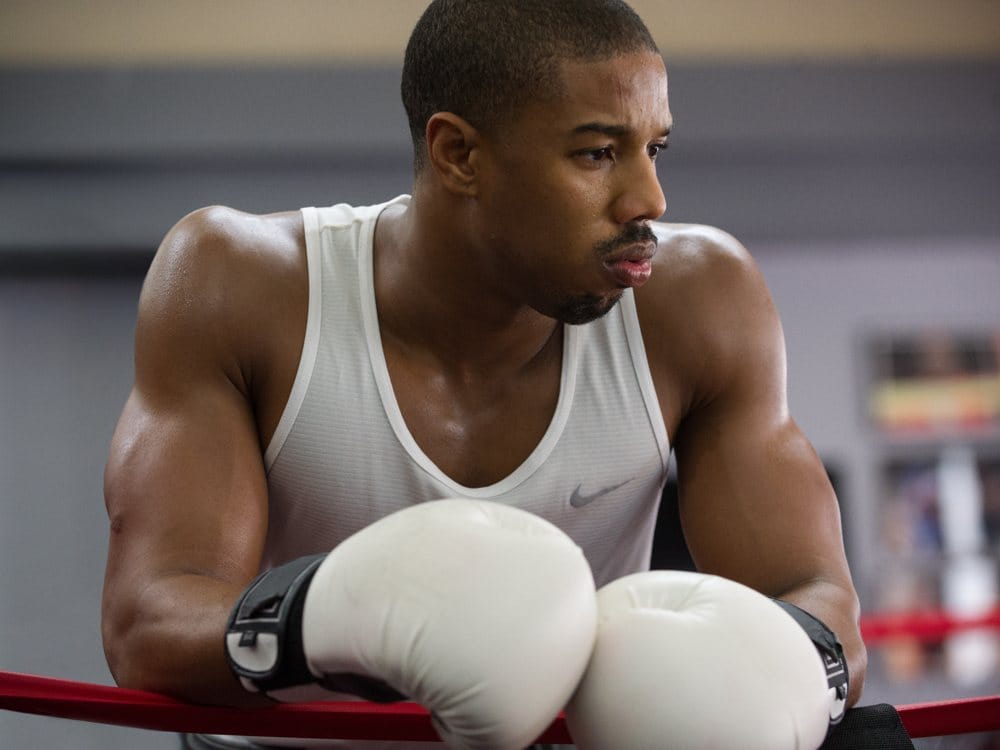
Character Development and Emotional Depth
The Creed franchise stands out in the realm of boxing cinema, not only for its gripping fight sequences but also for its rich character development and emotional depth. Central to the series is Adonis Creed, whose journey is as much about self-discovery as it is about pugilistic prowess. Born out of the shadow of his legendary father, Apollo Creed, Adonis grapples with his complex legacy. This struggle is vividly portrayed through his intense training sessions, personal conflicts, and emotional breakthroughs. The quest to forge his identity while honoring his father’s name serves as a powerful narrative thread that resonates deeply with audiences.
A pivotal figure in Adonis’s journey is his mentor, Rocky Balboa. The former boxing champion provides not only tactical wisdom but also emotional support, becoming a father figure to Adonis. Rocky’s presence adds layers of nostalgia and continuity, linking the Creed films with the iconic Rocky series. Their relationship is portrayed with authenticity and tenderness, reflecting themes of mentorship, legacy, and personal growth. Rocky’s own battles, both inside and outside the ring, intermingle with Adonis’s story, creating a multifaceted portrayal of ambition and perseverance.
The emotional depth of the franchise is further enriched by the character of Bianca, Adonis’s partner. Bianca’s personal aspirations as a musician, coupled with her hearing loss, add another dimension to the narrative. Her relationship with Adonis transcends traditional romantic subplots, portraying a partnership built on mutual respect, support, and shared struggles. Their journey together highlights the importance of balancing professional ambitions with personal lives, making their story relatable on multiple levels.
Through its exploration of themes such as ambition, family, legacy, and perseverance, the Creed franchise captures the essence of what makes a story compelling and universal. Each character’s personal and professional arcs are intertwined, creating a vivid tapestry that goes beyond the boxing ring. This nuanced approach ensures that the series appeals to a broad audience, resonating with both fans of the sport and those who appreciate profound, character-driven narratives.

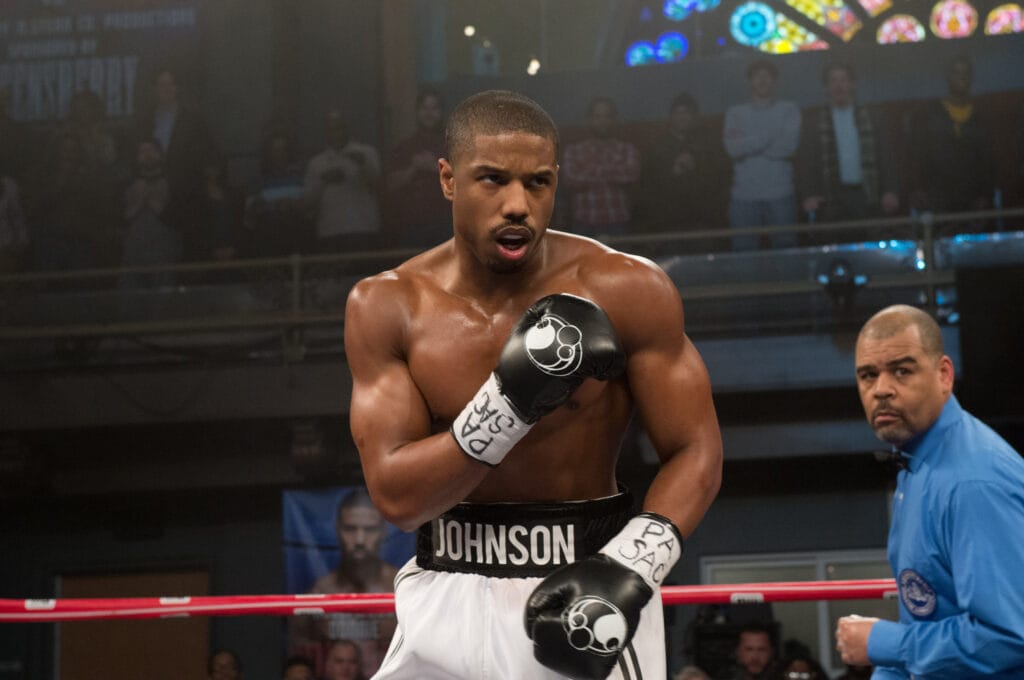
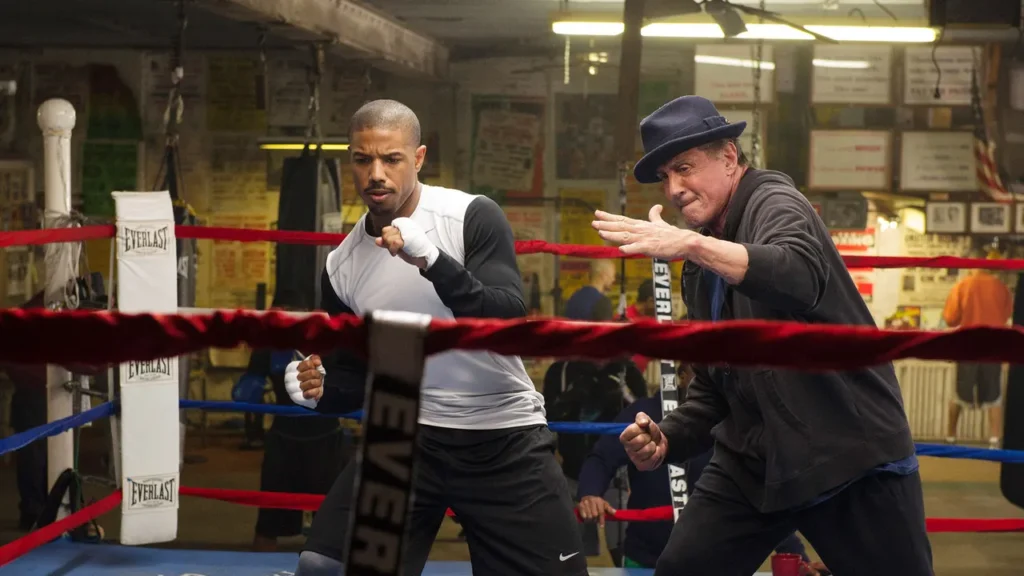
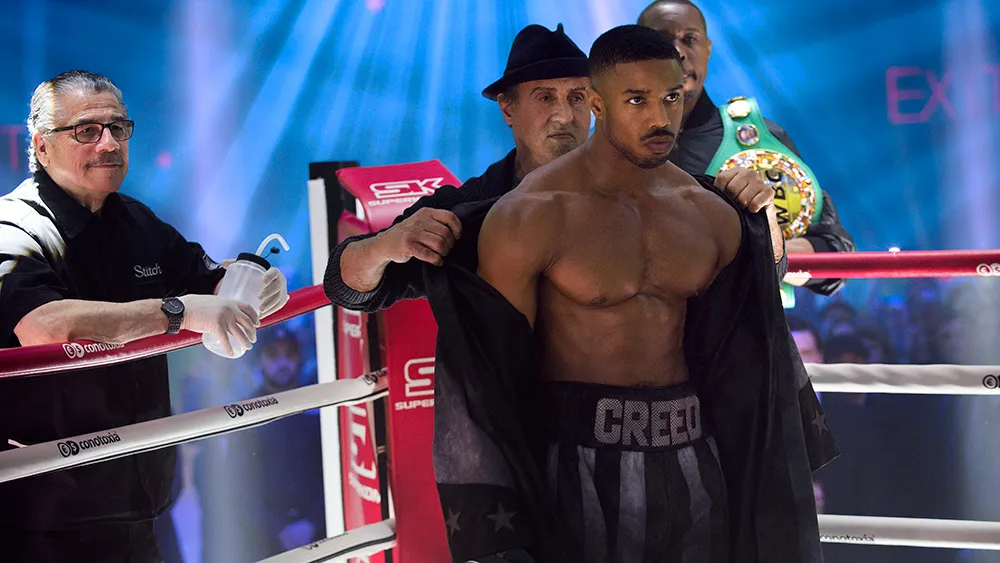
Cultural Impact and Legacy of the Creed Series
The Creed franchise has achieved remarkable success, not only within the realm of sports cinema but also in its broader cultural impact. These films have stirred conversations about race and representation in Hollywood by prominently featuring a predominantly Black cast and creative team. Directed by Ryan Coogler and starring Michael B. Jordan, the series has helped break the long-standing barriers that often marginalized Black talent in lead roles and significant creative positions.
The inclusion of diverse perspectives and narratives has enriched the cinematic landscape, making the Creed films exemplary of progress in Hollywood. The franchise has notably contributed to mainstream cinema by spotlighting diverse voices and characters, often underrepresented in the film industry. By doing so, the Creed series has managed not only to captivate audiences with its compelling storytelling and intense boxing sequences but also to provoke meaningful discussions about inclusivity and diversity.
The accolades received by the Creed franchise further attest to its significant cultural impact. The original Creed film garnered critical acclaim, leading to several nominations and awards, including a Golden Globe for Sylvester Stallone’s performance. Its success paved the way for subsequent sequels, each building upon the narrative and thematic foundations laid by its predecessor. This recognition has validated the efforts of the filmmakers and performers, showcasing the art and talent within the Black community while pushing other sports dramas to strive for similar authenticity and representation.
Looking ahead, the Creed franchise’s influence is set to inspire new generations of filmmakers and audiences. Its success opens doors for more stories from diverse backgrounds, encouraging aspiring directors, screenwriters, and actors to envision a more inclusive entertainment industry. The themes of perseverance and identity explored through these films resonate universally, ensuring that the series’ legacy will endure. As the cinematic landscape continues to evolve, the Creed franchise stands as a beacon of progress, hopeful for a future where diversity and representation become standard in storytelling.
